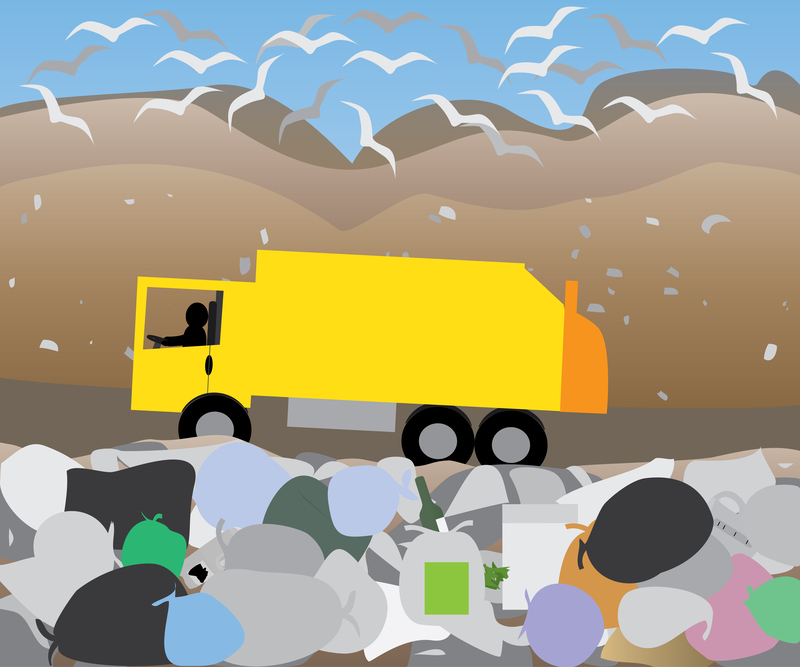Easy Steps for Biodegradable Waste Management
Posted on 07/09/2025
Managing biodegradable waste is crucial for maintaining a sustainable environment. With the overwhelming amount of waste generated every day, effective strategies for handling biodegradable waste can significantly reduce our carbon footprint. In this article, we will explore easy and practical steps for biodegradable waste management.
Understanding Biodegradable Waste
Biodegradable waste consists of materials that can decompose naturally through microbial activity. This type of waste includes organic materials such as food scraps, garden clippings, and paper products. The decomposition process results in nutrient-rich compost, which can be beneficial for soil health.

Why Manage Biodegradable Waste?
Proper management of biodegradable waste offers several environmental and economic benefits:
- Reduces landfill space: Decomposable waste is bulky and can take up significant landfill space.
- Minimizes greenhouse gas emissions: Decomposition in landfills produces methane, a potent greenhouse gas.
- Creates compost: Organic waste can be turned into compost, enhancing soil fertility.
- Conserves resources: Recycling biodegradable waste reduces the need for chemical fertilizers and other soil amendments.
Steps for Biodegradable Waste Management
Step 1: Waste Segregation
The first step toward effective biodegradable waste management is segregation. Separate biodegradable waste from non-biodegradable waste at the source. This includes setting up separate bins for organic waste. Educate household members or employees about the importance of waste segregation and provide clear instructions on what can and cannot be composted.
Step 2: Composting
Composting is the most effective way to manage biodegradable waste. It involves breaking down organic material under controlled conditions to produce humus-like compost. Here are a few composting methods:
Aerobic Composting
This method involves the decomposition of organic material using oxygen. Common methods include:
- Backyard composting: Suitable for households with outdoor space. Use a compost bin or pile organic waste in a dedicated area.
- Commercial composting: Large-scale composting facilities process significant amounts of organic waste.
Vermiculture
Vermiculture, or worm composting, uses earthworms to decompose organic material. This method is ideal for households with limited space. A simple worm bin can be used to compost kitchen scraps effectively.
Step 3: Using Kitchen Waste Disposers
Kitchen waste disposers are devices installed under the kitchen sink to shred biodegradable waste into small pieces, facilitating easy drainage. This method is convenient and can be particularly useful for managing food scraps that cannot be composted.
Step 4: Utilizing Municipal Composting Programs
Many cities offer municipal composting programs where residents can drop off biodegradable waste at designated sites. These programs often provide curbside pickup services for organic waste, making it easier for residents to dispose of their compostable material responsibly.
Implementing Biodegradable Waste Management in Businesses
Businesses generate a significant amount of biodegradable waste, particularly in the hospitality and food industries. Implementing waste management practices can help businesses reduce their environmental impact:
Conduct a Waste Audit
Start by conducting a waste audit to understand the types and quantities of waste generated. This information will help in designing an effective waste management plan.
Employee Training
Train employees on waste segregation and composting practices. Provide clearly labeled bins and instructions to ensure proper waste management.
Partner with Composting Services
Businesses can partner with local composting services to manage their organic waste. These services may offer regular pickup and processing, making it convenient for businesses to dispose of biodegradable waste.
Community Involvement in Biodegradable Waste Management
Community involvement is vital for successful biodegradable waste management. Here are ways to encourage community participation:
Educational Programs
Organize workshops and educational programs to raise awareness about the importance of biodegradable waste management. Provide information on composting techniques and the environmental benefits of reducing organic waste.
Community Composting Projects
Establish community composting projects where residents can contribute their organic waste. These projects can serve as a central composting hub, making it easier for individuals to participate in composting activities.
Incentive Programs
Implement incentive programs to encourage residents to engage in composting. This could include rewards or recognition for households and businesses that consistently practice effective waste management.

Challenges and Solutions in Biodegradable Waste Management
Managing biodegradable waste comes with its own set of challenges. Here are some common challenges and potential solutions:
Odor and Pest Issues
Biodegradable waste can attract pests and produce unpleasant odors, especially in warm climates. To mitigate these issues, always cover food scraps with a layer of brown material (e.g., dry leaves, paper) in compost bins. Ensure bins are securely closed to prevent pest access.
Space Constraints
Limited space can be a barrier for composting, particularly in urban areas. Vermiculture or participating in community composting initiatives can be effective solutions for those with space constraints.
Public Awareness
Public awareness and participation are often low. Community education programs and incentives can help overcome this challenge by making people more aware of the benefits of biodegradable waste management and how they can contribute.
Conclusion
Managing biodegradable waste effectively is a critical step toward a sustainable future. By following these easy steps--segregating waste, composting, utilizing kitchen waste disposers, leveraging municipal composting programs, and involving businesses and the community--we can significantly reduce our environmental impact. Educating ourselves and others, coupled with community involvement, will pave the way for cleaner, greener surroundings.
Start today by implementing these simple practices in your daily routine and encourage those around you to do the same. Together, we can make a substantial difference in managing biodegradable waste responsibly.
Latest Posts
Recycling for Environment Health
Start Your Plastic-Free Kitchen Journey
Recycling Polystyrene for a Greener Earth






